印度建筑的减排潜力
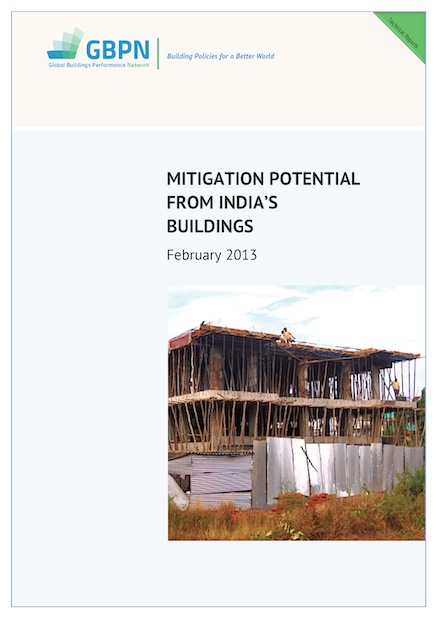 可靠证据表明,至2050年印度建筑领域会产生巨幅能源增长,基于此估测,本报告分析了印度目前建筑节能减排的政策框架及其节能潜力。
可靠证据表明,至2050年印度建筑领域会产生巨幅能源增长,基于此估测,本报告分析了印度目前建筑节能减排的政策框架及其节能潜力。
32 result(s) found
 可靠证据表明,至2050年印度建筑领域会产生巨幅能源增长,基于此估测,本报告分析了印度目前建筑节能减排的政策框架及其节能潜力。
可靠证据表明,至2050年印度建筑领域会产生巨幅能源增长,基于此估测,本报告分析了印度目前建筑节能减排的政策框架及其节能潜力。
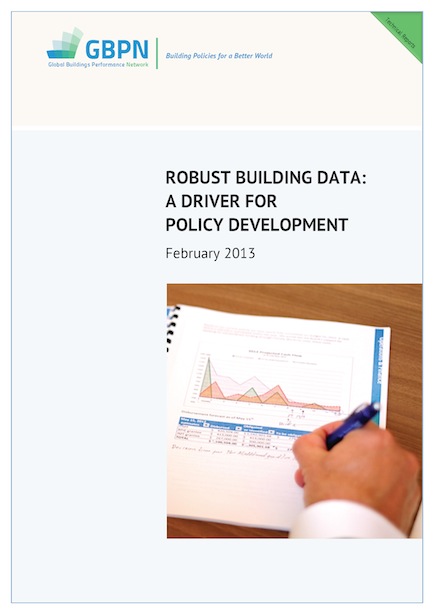 本报告就四个地区数据质量和数据的可利用性问题进行了分析,同时也提醒了我们需要完成多少工作才能建成一个强大而全面的建筑数据库,并提出了实现这个数据库的可行性建议。
本报告就四个地区数据质量和数据的可利用性问题进行了分析,同时也提醒了我们需要完成多少工作才能建成一个强大而全面的建筑数据库,并提出了实现这个数据库的可行性建议。
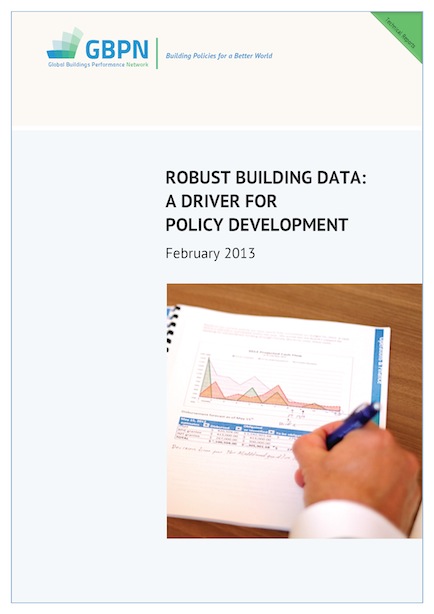 本报告就四个地区数据质量和数据的可利用性问题进行了分析,同时也提醒了我们需要完成多少工作才能建成一个强大而全面的建筑数据库,并提出了实现这个数据库的可行性建议。
本报告就四个地区数据质量和数据的可利用性问题进行了分析,同时也提醒了我们需要完成多少工作才能建成一个强大而全面的建筑数据库,并提出了实现这个数据库的可行性建议。
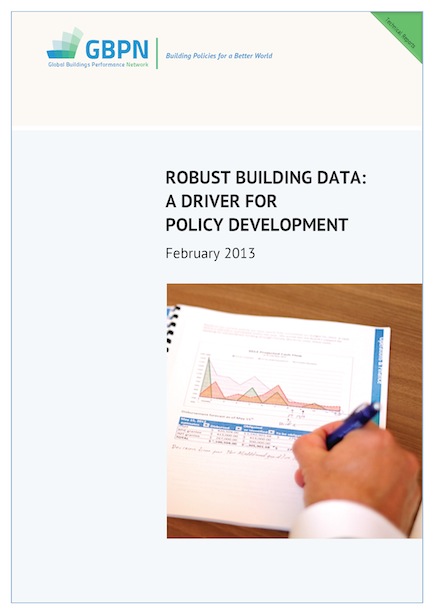 Data Annex
Data Annex
Discover where things stand regarding building energy data quality and availability in our four regions, this report reminds us of how far we have to go before a robust and comprehensive set of building data is in place and provides some recommendations of how we can get there.
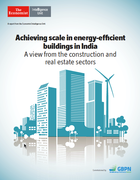 The Economist Intelligence Unit (EIU) report "Achieving scale in energy-efficient buildings in India: A view from the construction and real estate sectors" commissioned by the GBPN explains the challenges and opportunities of investing in energy efficiency in buildings in India.
The Economist Intelligence Unit (EIU) report "Achieving scale in energy-efficient buildings in India: A view from the construction and real estate sectors" commissioned by the GBPN explains the challenges and opportunities of investing in energy efficiency in buildings in India.
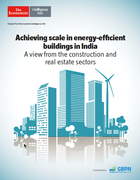 A report from the Economist Intelligence Unit (EIU), commissioned by the GBPN finds that while India’s commercial building sector has blazed the energy-effiency trail in the building sector, achieving significant scale will depend on efficiency measures becoming standard practice in the commercial middle market, retrofit and, particularly, the residential building segment.
A report from the Economist Intelligence Unit (EIU), commissioned by the GBPN finds that while India’s commercial building sector has blazed the energy-effiency trail in the building sector, achieving significant scale will depend on efficiency measures becoming standard practice in the commercial middle market, retrofit and, particularly, the residential building segment.
 Executive Summary
Executive Summary
GBPN conducted a study on the factors affecting the use of ESCO models for the retrofit of existing buildings in China, identifying current barriers to the development of the Chinese ESCO market, while also researching best-practice examples of ESCOs globally and investigating the feasibility of introducing those examples to China.
There is now widespread recognition in the international community that the commitments made by national governments under the Paris Climate Agreement in 2015 cannot be achieved without concerted action by cities. Fortunately, many mayors have shown strong commitment to tackling climate change and a willingness to collaborate to achieve this goal.
India is expected to add 40 billion m2 of new buildings till 2050. Buildings are responsible for one third of India's total energy consumption today and building energy use is expected to continue growing driven by rapid income and population growth. The implementation of the Energy Conservation Building Code (ECBC) is one of the measures to improve building energy efficiency.
It is clear that city must be part of the solution if an urbanizing world is to grapple successfully with ecological challenges such as energy depletion and climate change. A system dynamics model was developed in this study using STELLA platform to model the energy consumption and CO2 emission trends for the City of Beijing over 2005–2030. Results show that the total energy demand in Beijing is predicted to reach 114.30 million tonnes coal equivalent (Mtce) by 2030, while that value in 2005 is 55.99 Mtce, which is 1.04 times higher than the level in 2005.
This article provides useful information that could help you address some barriers to sustainable initiatives: Every executive that you speak to is aware that data can be manipulated and may be skeptical of studies conducted by organizations that could benefit from a particular set of results. So I've included information on independent third-party studies. In challenging economic times, people are particularly concerned about short-term cash flow.
This paper reviews the empirical literature that provides a correlation between the different barriers to energy efficiency and consumer behavior related to two domains. It evaluates behavior related to energy curtailment, which represents routine, repetitive effort to decrease consumption on a day-to-day basis. It also considers behavior related to investments, which are one time actions such as purchasing new energy efficiency technologies. The paper also reviews the existing literature that assesses the effect of policies on energy use and investment in energy efficiency technologies.
This project, “International Review of Residential Building Energy Efficiency Rating Schemes”, is the fifth project in a series of work conducted through the Building Energy Efficiency Task Group (BEET), under the International Partnership for Energy Efficiency Cooperation (IPEEC). This project report presents key governance and administrative considerations in the design of energy efficiency rating schemes, available information on the cost-effectiveness and market impact of rating schemes, barriers to uptake of schemes and lessons learned from the implementation of schemes.
Energy efficiency policies have the unique capacity to contribute to a more sustainable energy future at an economic net benefit even when co-benefits are not included in the evaluations. The purpose of this paper is to present quantitative and comparative information on the societal cost-effectiveness and the lifetime energy savings of all light eight building energy efficiency policy instruments.
The Dutch Government stimulates the application of energy efficiency measures to reduce the energy requirements of buildings, which are responsible for about 20% of the Dutch CO2 emissions. For our assessment, we followed a qualitative approach, due to a lack of data. We reviewed the mix of policy instruments and used stakeholder surveys and interviews. We found that energy use is not very likely to decline fast enough to achieve the Dutch policy targets for 2020. For new buildings, the policy mix works well, but its contribution to the policy targets is limited.
In-home displays, dynamic pricing, and automated devices aim to reduce residential electricity use—overall and during peak hours. We present a meta-analysis of 32 studies of the impacts of these interventions, conducted in the US or Canada. We find that methodological problems are common in the design of these studies, leading to artificially inflated results relative to what one would expect if the interventions were implemented in the general population.
This report is the first report of the ‘Energy Savings 2030’-project which seeks to help the Coalition for Energy Savings to produce a robust and timely input to the 2030 policy discussion. It brings together and summarises recent empirical evidence on costs and benefits of energy efficiency measures. The evidence gap in terms of reliable ex-post data is well known. In the majority of cases results from ex-ante modelling studies inform the debate. The research carried out for this report confirms the persistent gap in publicly available ex-post evaluations of energy efficiency programmes.